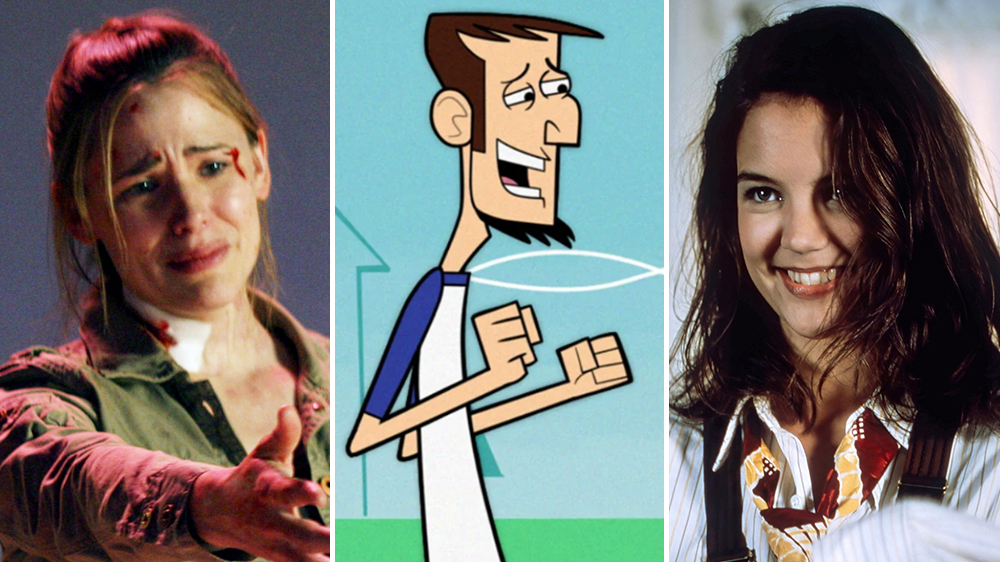
As part of Variety’s 100 Greatest Shows of All Time issue, we asked writers on our staff to name their favorite cult shows — series that may lack the clout, the following, or the prestige to quite notch an entry on our list, but ones for which our writers have a special fondness. Here are seven shows that are, to us, the greatest.
So the central mythology, about the mystical inventor Milo Rambaldi, came to little as the show went on. No big deal. On “Alias,” it was all about the ride. That’s meant very literally: Each week, the show crash-landed into an episode-ending cliffhanger. As played by a luminous, game, and utterly committed Jennifer Garner, superspy double agent Sydney Bristow changed her loyalties, her allies, and her wigs. The only constant in her life was chaos, into which a writing team led by J.J. Abrams thrust her week after week. A classically built spy serial thrumming with the metabolism of the internet, “Alias” never quite found the audience it might have, even as it supercharged several careers. Watched today, though, it still thrills. —Daniel D’Addario, chief correspondent
The Joy of Painting
No show better embodies the role of television as a companion when one is sick at home than watching Bob Ross — the gentle-voiced Air Force veteran with a passion for woodland creatures — somehow paint a bucolic landscape in less than 30 minutes. Taped from 1983 to 1994, Ross’s purred mumbling about “alizarin crimson” and “happy accidents” as his brushes tap out mighty sierras and majestic conifers has soothed millions of fevered viewers, often into a languid slumber. Utter bliss. —Adam B. Vary, senior entertainment writer
Dawson’s Creek
“Dawson’s Creek” aired its series finale just two months before I turned 13. But I often returned to the series’ 128 episodes as I moved through my teenage years. The appeal was obvious: The show featured smart teenagers who took themselves, their friendships, and the ups and downs of their lives seriously. These were truly relatable characters: Like Dawson, I was enthralled with cinema, and like Joey, I always seemed to be a guy’s girl instead of the leading lady in a romance of my own. “Dawson’s Creek” was both fantasy and familiar, showcasing the themes that occupied teenage minds without patronizing them. I took comfort in knowing the characters had, in frank and honest ways, already navigated some of the things I was dealing with in my real life. —Aramide Tinubu, television critic
Gargoyles
“Gargoyles” was, to put it simply, ahead of its time. When Disney was putting out shows like “Goof Troop,” “TaleSpin,” and “Darkwing Duck,” here came a dark, semi-serialized show that combined elements of magic, mysticism, sci-fi, and more. It tackled heavy themes like betrayal, honor, and loss in ways that few animated shows ever have. It remains a major pop culture cornerstone of an entire generation — and for good reason. —Joe Otterson, senior television writer
The Real Housewives of Atlanta
In its original design, Bravo’s “Real Housewives” franchise — which kicked off in 2006 with “The Real Housewives of Orange County” — was to be an unscripted version of “Desperate Housewives.” What it became, at first accidentally, later on purpose, is an ongoing documentary project about American women — whether its cast members are fancy ladies from “Beverly Hills,” bruisers from “New Jersey,” or upscale (ex-)Mormons from “Salt Lake City.” In the case of “The Real Housewives of Atlanta,” a standout entry in a franchise that changed television, the alchemy among the nearly all-Black cast in its 2008 debut season proved that the format not only was repeatable, but that it could be as magical — and downright hilarious. —Kate Aurthur, editor-at-large
Clone High
Before Phil Lord and Chris Miller (of “The Lego Movie” and the “Spider-Verse” films) were big names with big budgets, they were two dorks with a relatable dream: to pen an animated parody of popular teen soap operas where a 16-year-old clone of Abe Lincoln was the lovable nerd, John F. Kennedy’s clone was the hot bully and young Joan of Arc was the goth love interest. It was a premise worthy of TV history, and one that spun out in glorious and strange directions. Its one perfect season, aired for the first time stateside on MTV in 2003 after a run on Canada’s Teletoon the year before, ended in cancellation. Though the franchise was later revived on Max, its fate back then seemed fitting: “Clone High” was always too weird to be true. —Selome Hailu, reporter
Mr. Show With Bob and David
To the general public, David Cross will forever be Tobias Funke from “Arrested Development,” just as Bob Odenkirk will forever be Saul Goodman of “Breaking Bad” and “Better Call Saul.” But to a small yet vocal subset of comedy nerds, both performers are first and best known for “Mr. Show,” the sketch series that ran for four seasons in the late 1990s on HBO. Cross and Odenkirk are hardly the only members of the “Mr. Show” team to find greater renown in subsequent years; everyone from Jack Black to Paul F. Tompkins to Tom Kenny, the future voice of “SpongeBob Squarepants,” either appeared on or wrote for the show. But beyond its contributors’ IMDB pages, “Mr. Show’s” impact was as a font of irreverent, offbeat humor that it helped push beyond niche. —Alison Herman, television critic













